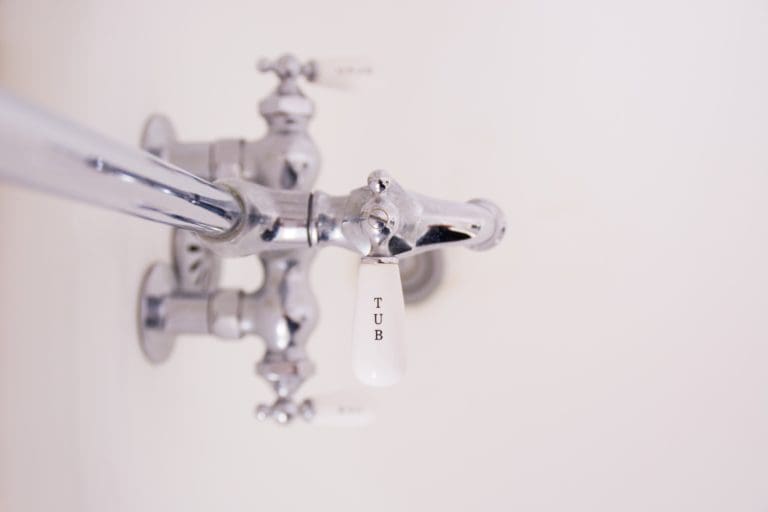Home inspection services are an important part of real estate transactions. Understanding what home inspectors look for can help anyone trying to buy or sell a home.
If you’re buying a home, one of the most important steps you’ll take is getting a home inspection. This is an unbiased, thorough inspection of the home’s condition that can help you make an informed decision about your purchase. But what do home inspectors look for? And when should you inspect your home?
Photo by Spacejoy on Unsplash

What Do Home Inspectors Look For?
Home inspectors look for a variety of things when they inspect a home. They examine the structure of the home, including the foundation, walls, and roof. They also inspect the electrical and plumbing systems, as well as the heating and cooling systems. Inspectors check for signs of water damage, mold, and other potential hazards.
Home Inspections: Worth the Investment?
While home inspections can cost a few hundred dollars, they are well worth the investment. A thorough inspection can uncover potential problems that could cost you thousands of dollars in repairs down the road. In some cases, an inspection can even help you negotiate a lower price for the home.
When Should You Inspect Your Home?
You should have a home inspection done as soon as possible after making an offer on a home. In most cases, you’ll want to include a home inspection contingency in your purchase agreement, which gives you the option to back out of the deal if the inspection reveals major problems.
How Do You Write a Counter Offer After a Home Inspection?

If the inspection reveals major problems with the home, you may want to negotiate a lower price or ask the seller to make repairs before closing. To do this, you’ll need to write a counteroffer. Your real estate agent can help you draft a counter offer that outlines the repairs or price reduction you’re requesting.
What Should You Ask During a Home Inspection?
During a home inspection, you should ask the inspector any questions you have about the home’s condition. You should also ask for advice on how to maintain the home and prevent potential problems in the future.
How Long After a Home Inspection Does a Buyer Have to Back Out?
The answer to this question depends on the terms of your purchase agreement. In most cases, you’ll have a specified amount of time to back out of the deal after the inspection is completed. Your real estate agent can help you understand the terms of your agreement.

How Should You Prepare Your Home for a Home Inspection?
Before the inspection, you should make sure your home is clean and tidy. You should also make sure all utilities are turned on so the inspector can test the heating, cooling, and plumbing systems.
How Much Does a Mold Inspection Cost on a Home?
The cost of a mold inspection can vary depending on the size of the home and the extent of the inspection. In general, you can expect to pay a few hundred dollars for a basic inspection.
How do Home Inspections Work?
Home inspections typically take a few hours to complete. During the inspection, the inspector will examine every part of the home and make note of any potential problems. After the inspection, the inspector will provide a detailed report that outlines their findings.
Who Pays for a Home Inspection?
In most cases, the buyer pays for the home inspection. However, some sellers may choose to have an inspection done before listing their home for sale.
How Much Does a Home Inspection Cost?
The cost of a home inspection can vary depending on the size of the home and the extent of the inspection. In general, you can expect to pay a few hundred dollars for a basic inspection.
How Long Does a Home Inspection Take?
Home inspections typically take a few hours to complete. However, the exact length of the inspection will depend on the size of the home and the extent of the inspection.
What Should Sellers Expect from a Home Inspection?
If you’re selling your home, you should expect the inspector to examine every part of your home and make note of any potential problems. It’s a good idea to take care of any minor repairs before the inspection, as this can help prevent the inspector from finding major problems.
My Inspection Report Lists Dozens of Defects! What Should I Do?
If your inspection report lists dozens of defects, don’t panic. Your real estate agent can help you understand which defects are major and which are minor. You may also want to consider negotiating a lower price or asking the seller to make repairs before closing.

Quick Takeaways on Home Inspections
- Home inspections are a crucial part of the home-buying process.
- Inspectors look for a variety of things, including structural issues, electrical and plumbing problems, and potential hazards.
- Inspections can uncover potential problems that could cost you thousands of dollars in repairs down the road.
- It’s a good idea to include a home inspection contingency in your purchase agreement.
- You should ask the inspector any questions you have about the home’s condition.
- The cost of a home inspection can vary depending on the size of the home and the extent of the inspection.
- The length of a home inspection will depend on the size of the home and the extent of the inspection.
- Sellers should expect the inspector to examine every part of their home and make note of any potential problems.
Home Inspection Checklist for Buyers
If you’re a buyer, you may want to create a home inspection checklist to ensure that you don’t overlook anything during the inspection. Some things to include on your checklist might include:
- Structural issues
- Electrical and plumbing systems
- Heating and cooling systems
- Water damage and mold
- Potential hazards
- Windows and doors
- Insulation and ventilation
- Gutters and downspouts
The Home Inspection Professional
When it comes to home inspections, it’s important to choose a professional who is trained and certified. Look for an inspector who is a member of the American Society of Home Inspectors (ASHI) or another reputable organization. A certified home inspector will provide a thorough and unbiased inspection that can help you make an informed decision about your purchase.
The Home Inspection Contingency
The home inspection contingency is an important part of the purchase agreement. It gives you the option to back out of the deal if the inspection reveals major problems. It’s important to include this contingency in your agreement to protect yourself as a buyer.
What a Home Inspection Covers
A home inspection covers every part of the home, including the structure, electrical and plumbing systems, heating and cooling systems, and potential hazards. The inspector will provide a detailed report that outlines their findings and any potential problems.
Not Covered in a Home Inspection
While home inspections cover a lot, there are some things that are not typically covered, including:
- Asbestos testing
- Lead testing
- Pest inspections
- Appraisals
Certified Home Inspections
When it comes to home inspections, it’s important to choose a certified inspector. Certified inspector has completed training and certification programs that ensure they have the knowledge and expertise to provide a thorough and unbiased inspection.
How to Get a Better Home Inspection Report
To get a better home inspection report, it’s important to take care of any minor repairs before the inspection. This can help prevent the inspector from finding major problems. You should also ask the inspector any questions you have about the home’s condition and how to maintain the home to prevent potential problems in the future.
Next Steps After a Home Inspection
After a home inspection, you’ll need to review the inspector’s report and decide how to proceed. If the inspection reveals major problems, you may want to negotiate a lower price or ask the seller to make repairs before closing. If the inspection reveals only minor problems, you can decide whether to accept the home as-is or ask the seller to make repairs.
Home Inspection vs. Home Appraisal
A home inspection is not the same as a home appraisal. An appraisal is an assessment of the home’s value, while an inspection is an assessment of the home’s condition. Both are important steps in the home-buying process, but they serve different purposes.
Residential Property Inspection
A residential property inspection is a comprehensive inspection of a home’s condition. It covers every part of the home, including the structure, electrical and plumbing systems, heating and cooling systems, and potential hazards.
Exterior Building Inspection
An exterior building inspection is an assessment of the exterior of a building, including the roof, walls, and foundation. This type of inspection can help identify potential problems that could lead to expensive repairs down the road.
HVAC System Inspection
An HVAC system inspection is an assessment of the home’s heating and cooling systems. This type of inspection can help identify potential problems with the system, such as leaks or inefficient operation.
Plumbing Inspection
A plumbing inspection is an assessment of the home’s plumbing system. This type of inspection can help identify potential problems with the system, such as leaks or clogs.
Radon Inspection
A radon inspection is an assessment of the home’s radon levels. Radon is a colorless, odorless gas that can be harmful in high levels. A radon inspection can help identify potential problems with the home’s radon levels.
The House Inspection Process: What Home Buyers Should Know
The house inspection process can be stressful for home buyers. However, it’s an important step in the home-buying process that can help you make an informed decision about your purchase. During the inspection, the inspector will examine every part of the home and make note of any potential problems. After the inspection, the inspector will provide a detailed report that outlines their findings.
Home Inspection Report Vs. Seller’s Disclosure Statement
A home inspection report and a seller’s disclosure statement serve different purposes. A home inspection report is an assessment of the home’s condition, while a seller’s disclosure statement is a document that outlines any known issues with the home.

Home Inspection 101
If you’re new to home buying, you may be wondering what a home inspection is and why it’s important. A home inspection is an unbiased, thorough inspection of the home’s condition that can help you make an informed decision about your purchase.
Home Inspection FAQs
Here are some frequently asked questions about home inspections:
- Who pays for the home inspection? In most cases, the buyer pays for the home inspection.
- How much does a home inspection cost? The cost of a home inspection can vary depending on the size of the home and the extent of the inspection.
- How long does a home inspection take? Home inspections typically take a few hours to complete.
- What should I expect from a home inspection? You should expect the inspector to examine every part of the home and make note of any potential problems.







